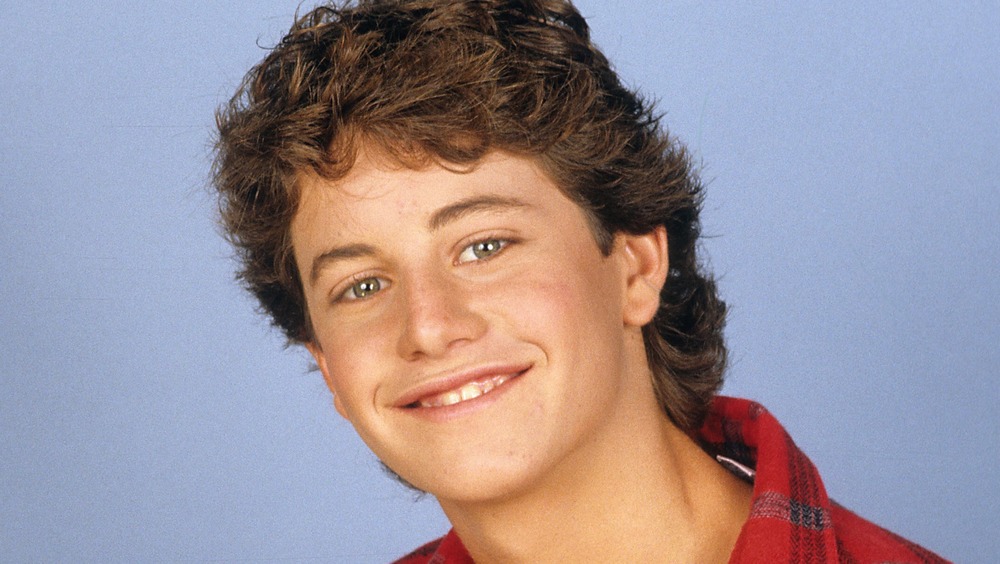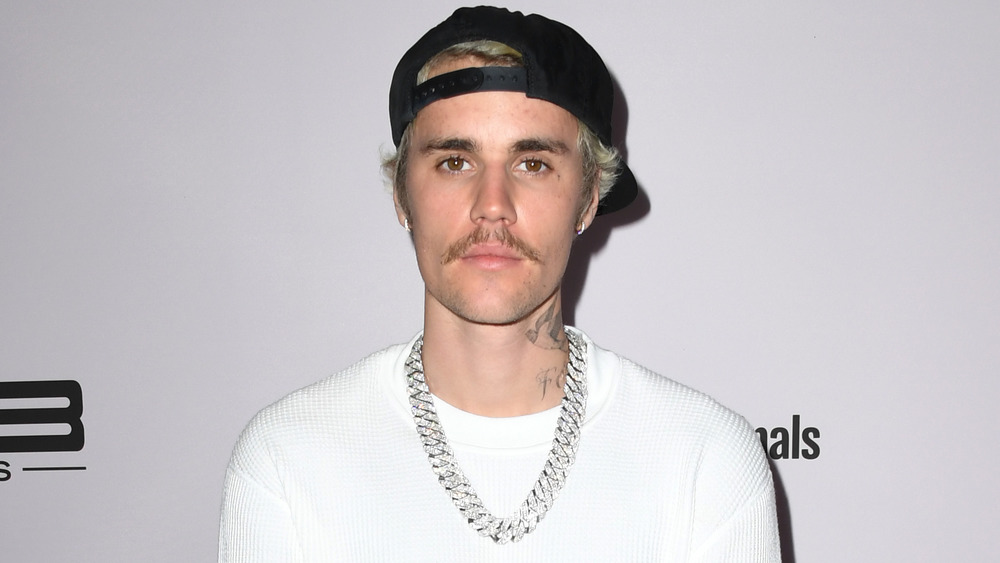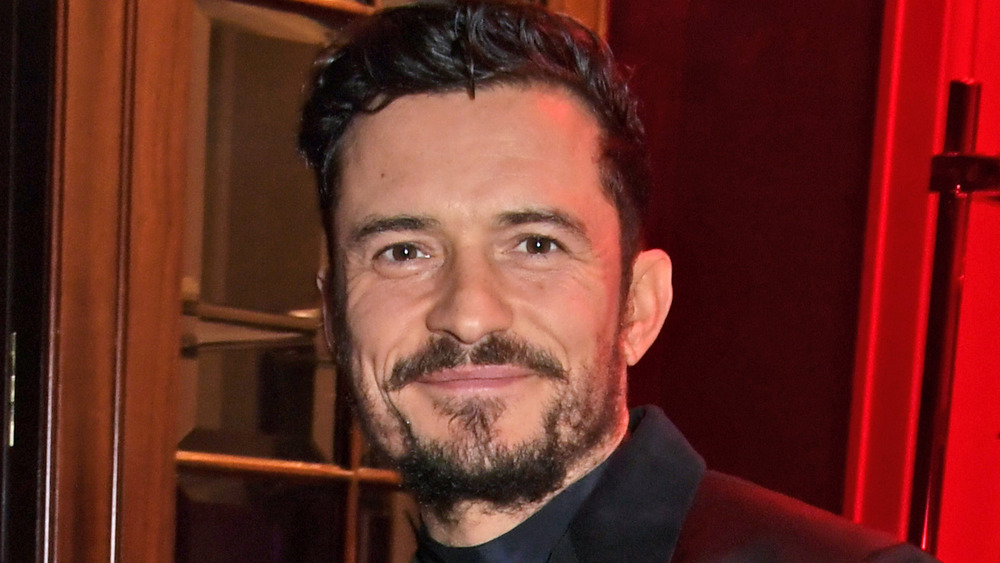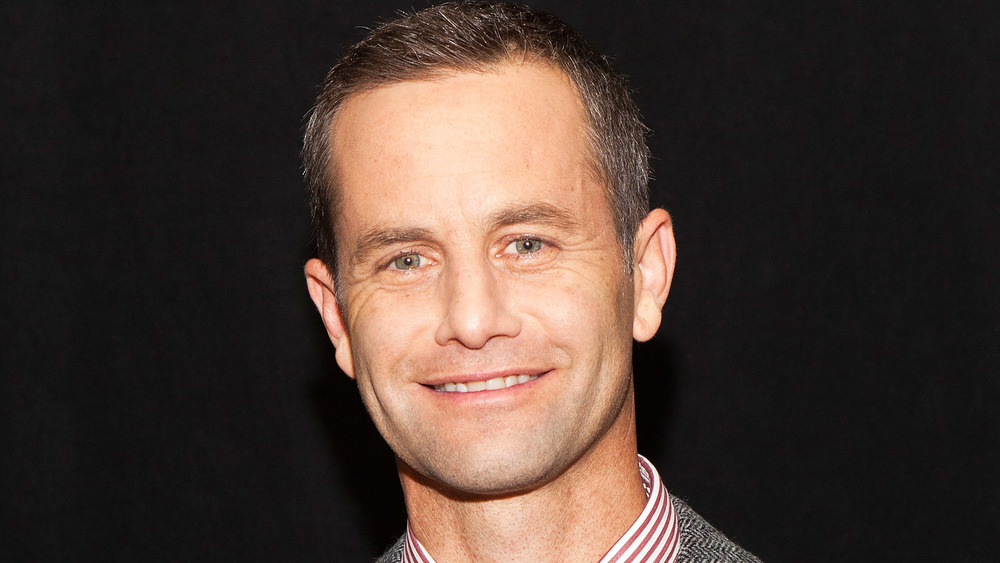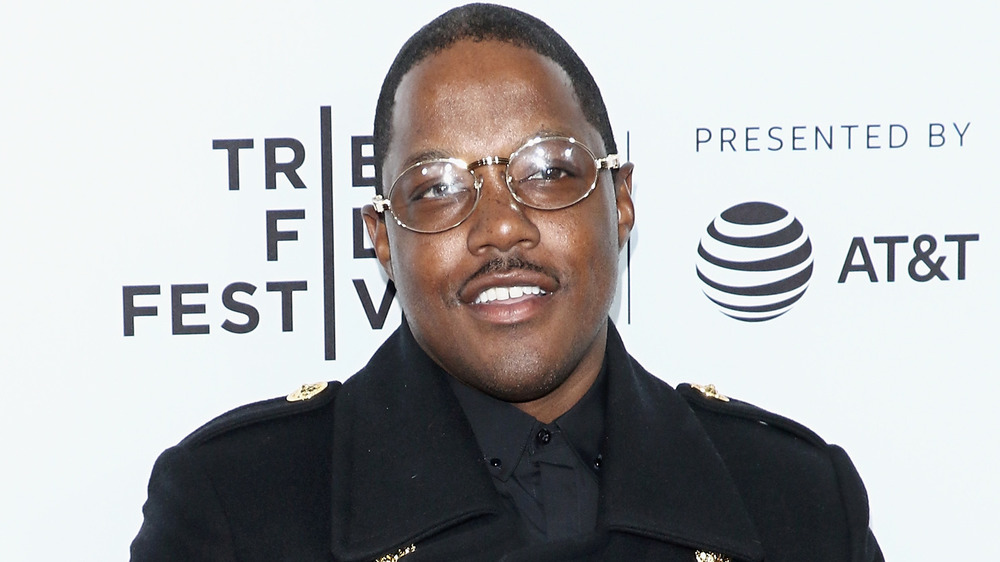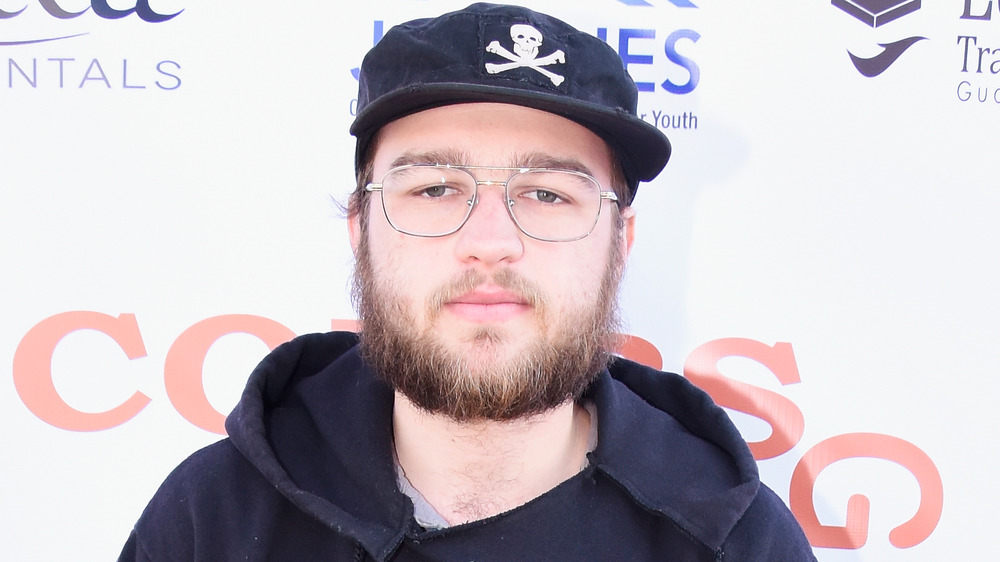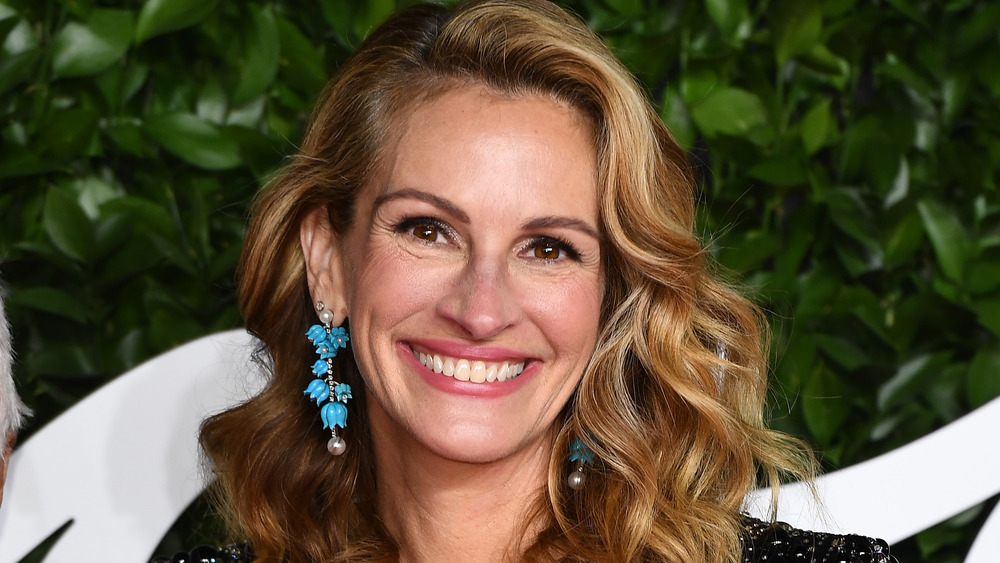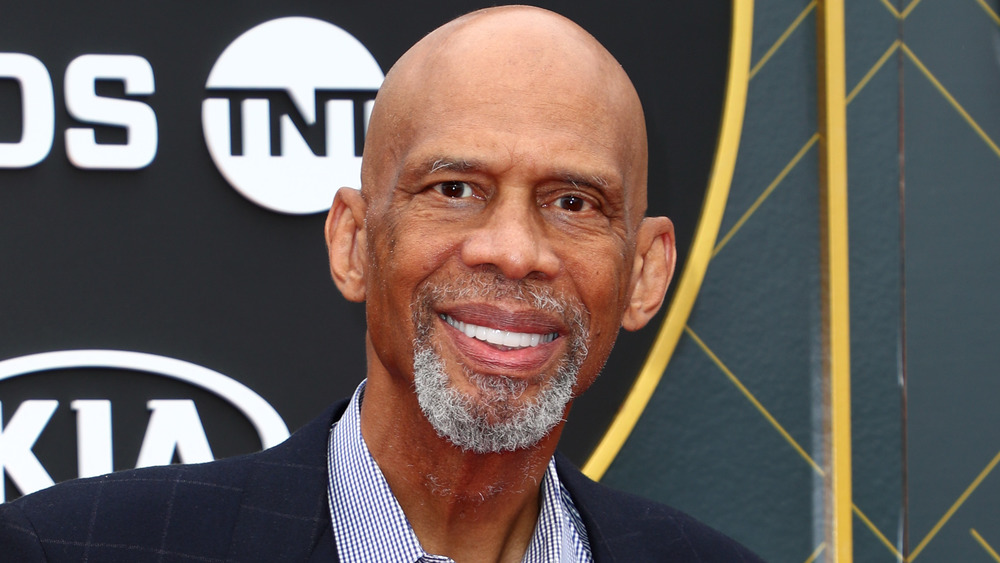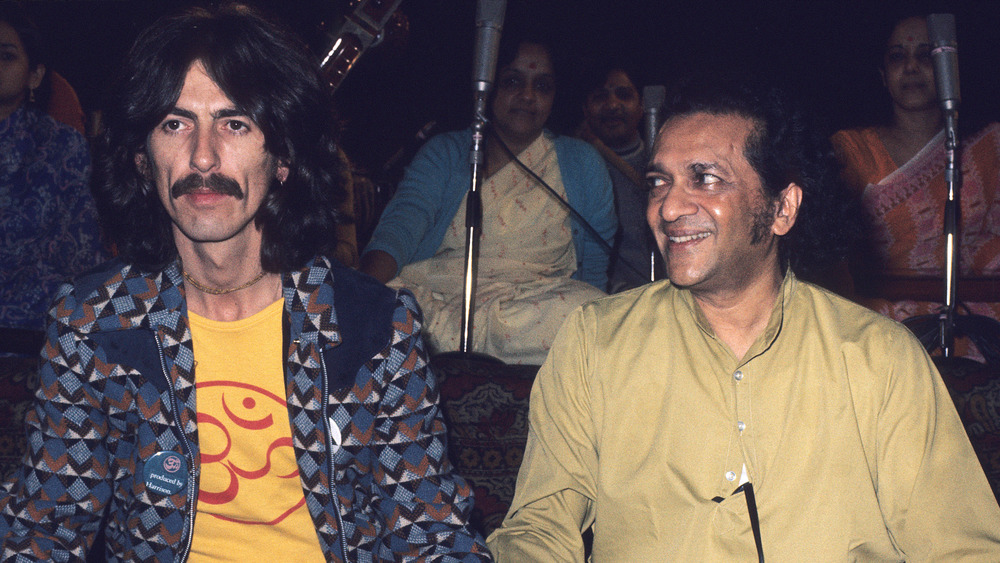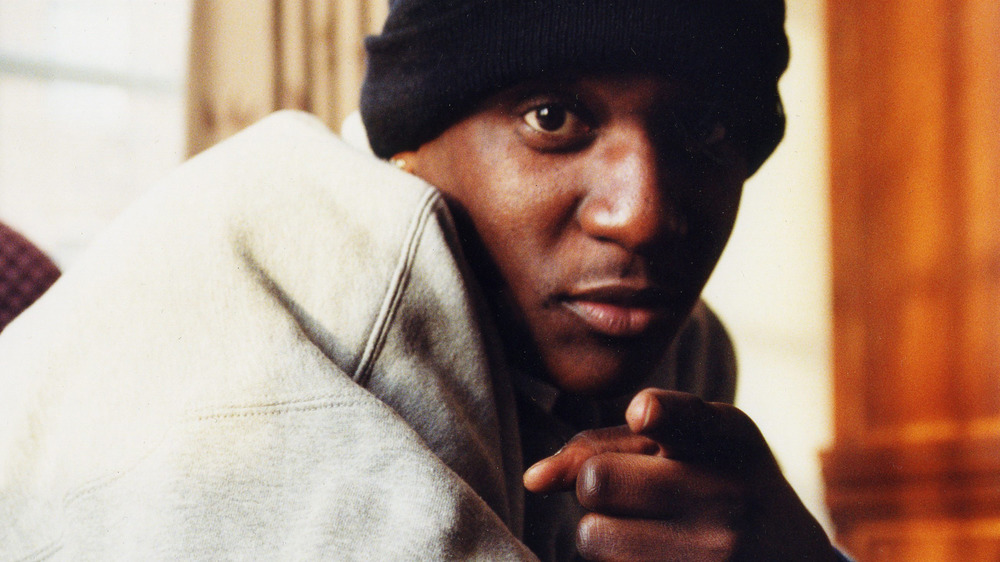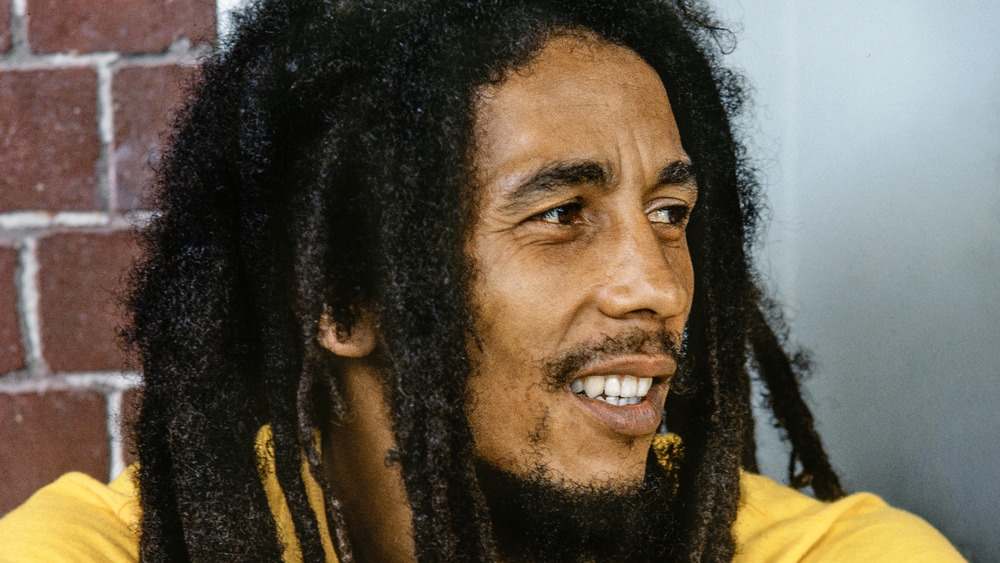Why These Celebs Were Never The Same After Finding Their Religion
Religion may not be the first thing one thinks about when a celebrity's name pops up, but there are some stars who have strong ties to it, oftentimes because they had a spiritual awakening in the middle of their career. Some who've experienced that life change have walked away from entertainment altogether afterward, while others incorporate their new belief system into their work.
The public reaction to a religious conversion can also vary. There have been times when people seem to embrace the change and congratulate an entertainer for making it. Then there are moments when the opposite occurs, because maybe that famous person began spreading their beliefs in a way that people found annoying, or perhaps they've joined a religion that many don't know the ins and outs of. But regardless of how people have reacted, we put together a list of celebrities who found religion and were never the same afterward.
Justin Bieber lost his bad boy ways
People usually go through all kinds of personal changes in their late teens and early 20s, but most have the luxury of doing it away from a glaring spotlight; for the average human, the ugliness that often comes with going through a metamorphosis is kept relatively private. Of course, things have been anything but private for Justin Bieber since he released his debut album My World 2.0 in 2010. Soon after, he turned into a global pop star, then eventually seemed to resent just how famous he became. One could say that Bieber's frustration was seen when he famously wanted to fight a photographer in 2013 while in London. Then in 2014, he embraced Christianity and got baptized by former Hillsong NYC pastor Carl Lentz in New York. "I was in a weird place and I felt it in my soul," said Bieber in 2015 on the Zach Sang Show. "I was looking at myself in the mirror ... I was so lost."
But eventually Bieber said that everything turned around for him. "When I really sit in my room and I'm alone and I can just, like, 'God are you there?' I feel this connection with something that's a higher being ... It just puts an ease to my soul that's, like, I can't describe," he explained.
Buddhism helped Orlando Bloom deal with fame
For many actors, it probably goes something like this: Guy or girl develops an innocent love for the acting craft, maybe through a school play or the movies. From there, that person gets some sort of training, then if they're lucky a paid gig. Then a small percentage of actors achieve fame, something that, as Orlando Bloom found, isn't always easy to manage. During a 2019 interview with SGI-USA, the English born actor said that he discovered Buddhism as a young person in school through a friend. Bloom converted to the religion in 2004, according to Female First.
"Throughout these years of really unusual circumstances being a young actor who was really notable and was really thrust into the public eye without the tools to know how to cope often, and how grateful I was for the practice to have been an anchor for me throughout those years and through that period," Bloom said of Buddhism in the aforementioned interview. And in an October 2020 appearance on The Ellen DeGeneres Show, Bloom said that his Buddhism comes in handy as a way to connect with Daisy Dove Bloom, his daughter with Katy Perry. When the host asked if he chants to the baby, he replied, "I chant Nam-myoho-renge-kyo, which is this Buddhist mantra I've had since I was 16."
Kirk Cameron found religion as a teen
Early in his career, actor Kirk Cameron starred on the ultra popular '80s sitcom Growing Pains and was a teen heartthrob who practically lived on magazine covers. But everything would change for him after going from being an atheist to a devout Christian. "I was about 17 years old, and I followed a girl into church," Cameron told CBN in 2008. "Not because I wanted to learn about God, but because I wanted to be with this girl that I heard the Gospel for the first time." After that church visit, the actor said he thought about what would happen to him if he suddenly passed away. "I decided that I needed to be saved," he recalled.
The conversion not only changed Cameron's outlook, it also changed his reputation in Hollywood after he began expressing his views. Cameron's relationship with his former Growing Pains castmates was also different. "At the end, Kirk had drifted away from the show. When he got married during a summer hiatus up in New York none of us were invited. He had pretty much made it clear he needed his separation from us," said Tracey Gold, who played Cameron's sister Carol Seaver on the show, in an interview with the Los Angeles Times in 2000. In recent years, Cameron has released videos called Living Room Reset where he talks about his faith and marriage to actor Chelsea Noble.
Mase went from the studio to the pulpit
In 1997, New York rapper Mase seemed to be living the hip-hop dream. He had a smash record on Sean "Diddy" Combs' record label called Harlem World, a bunch of adoring fans and was rumored to be dating singer Brandy when her career was red hot. Then two years later, out of the clear blue, Mase announced his retirement from music. He then became a preacher at El Elyon International Church in Atlanta. "I gotta do what makes me happy," he said on New York radio station Hot 97 in 1999. "A lot of people gonna say I'm crazy. I'm leaving money behind and a lot of things, but it's just, you know, how I feel in my heart. Once God puts something in your heart, you know, God talks to everyone different."
Mase returned to his rap career after releasing his 2004 album Welcome Back, and while it did achieve some commercial success, it was not an unstoppable hit like Harlem World. Then in 2014, some of Mase's congregation spoke to TMZ and blasted him, saying he wasn't sincere about being a Christian. The New York born artist reportedly left El Elyon International Church that same year to focus on rap full time, according to TMZ. But he hasn't released an album since then.
Angus T. Jones made an exodus from television
It was the interview that made headlines and probably had CBS executives scrambling to find a quick fix. In a 2012 video for The Forerunner Church's YouTube channel, actor Angus T. Jones said that he found Christianity and was a Seventh-day Adventist. He also explained how the conversion affected his view of Two and a Half Men, the sitcom he'd been on since 2003. "If you watch Two and a Half Men, please stop watching Two and a Half Men," said Jones. "I'm on Two and a Half Men and I don't want to be on it. Please stop watching it. Please stop filling your head with filth."
After leaving the show after its tenth season concluded, Jones became a student at the University of Colorado at Boulder, majoring in Jewish studies. He returned to Two and a Half Men for the series finale in 2015, then one year later told People that he stepped away from "faith-based organizations," because he felt they "[put] a stamp of approval on how "good or bad" he is. Jones also spoke about returning to acting during that interview, saying, "The door is definitely still open for me to do that, but I'm taking things slowly." It's not clear what Jones is doing nowadays, but as of 2019 he seemed just fine with being away from film sets. "There is only one success: the ability to lead the life that one wants," he wrote on Instagram in May of that year.
Julia Roberts showed that art can imitate life
In 2010, Julia Roberts played author Elizabeth Gilbert in the film adaptation of the celebrated memoir Eat Pray Love. The story surrounds Gilbert going on a year-long trip of self-discovery to Italy, India, then Indonesia. The Times of India reported in 2010 that Roberts converted to Hinduism while shooting in India, proving that art and life often mirror each other as many say. After her conversion, the actress reportedly began attending a Los Angeles Hindu temple, as did her husband Daniel Moder and their children Hazel, Phinnaeus, and Henry. And all of them also "Chant, pray and celebrate on a regular basis."
"My opting for Hinduism is not a religious gimmick," said Roberts in 2010 during an interview with The Hindu. "Finding peace and tranquility of mind in Hinduism, one of the oldest and respected religions of civilization. I have no intention of demeaning any other religion simply because of my fondness for Hinduism. I don't believe in comparing religions or human beings ... I have received real spiritual satisfaction through Hinduism." At a 2011 Eat Love Pray press conference, Roberts wanted to make it clear that the film didn't influence her religious conversion. "I didn't suddenly make this movie and start practicing Hinduism," she shared. "It's just something that's been part of my life for a very long time."
Kareem Abdul-Jabbar faced 'a lot of angry backlash'
For some, it may be hard to imagine Kareem Abdul-Jabbar as a young, beardless basketball phenom named Ferdinand Lewis Alcindor. But before he was known as the legendary NBA star, he converted to Islam in 1971. The move shocked many, and Jabbar received plenty of blowback. The retired center made the announcement about his conversion one day after he and the Milwaukee Bucks won their first NBA championship.
"Because of my fame as a professional basketball player and because so few Americans knew anything about Islam back in the '70s, there was a lot of angry backlash," wrote Jabbar in his 2017 memoir Becoming Kareem: Growing Up On and Off the Court. "People did not want me messing with their idea of who I was or what I represented to them. To many, by changing my religion and name, I was no longer the typical American kid playing a typical American sport, embodying typical American values."
Jabbar also addressed his conversion in a 2015 article that he penned for Al Jazeera America, writing, "For most people, converting from one religion to another is a private matter requiring intense scrutiny of one's conscience. But when you're famous, it becomes a public spectacle for one and all to debate." The Hall of Famer also wrote that even though it's been several decades, he is "still defending that choice" to convert.
George Harrison fell in love with Eastern religions
When it comes to finding religion, some may try it on for size and if it doesn't properly fit they'll move on. But others stay in that religion for the rest of their lives, which was the case with The Beatles' George Harrison. The beloved rocker — who died in 2001— discovered Hinduism in his 20s, as well as other Eastern religions. He then began visiting India regularly, studied the sitar while there and also embraced Hare Krishna traditions.
"I always felt at home with Krishna," said Harrison in a 1982 interview with the Prabhupada Hare Krishna News Network, according to Beatles Ireland. "You see it was already a part of me. I think it's something that's been with me from my previous birth. I'd rather be one of the devotees of God than one of the straight, so-called sane or normal people who just don't understand that man is a spiritual being, that he has a soul." Hinduism and Hare Krishna beliefs were also a big piece of Harrison's solo career after the Beatles went their separate ways, like on his 1970s album All Things Must Pass, which featured the hit single "My Sweet Lord." In it, Harrison sings, "I really want to know you/Really want to go with you/I really want to show you, Lord/That it won't take long."
No Malice changed his name
Sometimes when one discovers spirituality, their old life no longer fits and he or she wants to let go of their past entirely. Such is the case with Virginia rapper No Malice, who used to go by Malice. Sound confusing? Okay, well, let's backtrack a little bit. In 2002, No Malice and his younger brother Pusha T released their debut album Lord Willin' produced entirely by The Neptunes, the production duo that consists of Pharrell Williams and Chad Hugo. The album took off, and the Clipse became darlings among rap fans and critics alike. From there, they released two more well-received albums, 2006's Hell Hath No Fury and 2009's Til the Casket Drops.
But there wouldn't be any more LPs from the group after No Malice found Christianity. "My perspective on things that I once deemed important and trivial has changed," he told the Village Voice in 2011. "A lot of what I tried to attain was like chasing the wind ... I was chasing all these material things, money, women, just looking for fulfillment. Ultimately, though, my fulfillment came from my faith." No Malice then changed his name in 2012, which he announced on social media. "R.I.P. Malice 8/20/2002 – 3/6/2012," tweeted the rapper on March 6, 2012. He also talked about the name change on VladTV in 2017, sharing, "I absolutely know there is nothing malicious about me ... I'm actually called to love and to love everyone."
Bob Marley became a bigger star
If you look at Bob Marley when he was a young man in The Wailers — the group that he founded with Peter Tosh and Bunny Wailer — he wore suits and kept a conservative-looking haircut. Then Marley found Rastafarianism, a religion that started in Jamaica in the 1930s. Its followers believe the former Emperor of Ethiopia, Haile Selassie, is the messiah. Selassie was born Tafari Makonnen, hence the name of the religion. During a 1980 interview with reporter Gil Noble, Marley said that he found Rastafarianism at around 18 years old and grew into it once meeting others followers in Kingston, Jamaica.
The late singer's music and career would then mirror his new found beliefs, and the low haircut was replaced by his signature dreadlocks, worn by many Rastafarians. There were also less songs about partying and more about being a Rasta, like "Rastaman Live Up," and "Forever Loving Jah." Then after infusing his beliefs into his music, Marley's career took off even further, and he became the biggest reggae artist in the world, a title that many say he still holds today. The iconic singer also became somewhat of a global ambassador for Rastafarianism, introducing it to many who probably weren't familiar with it.

